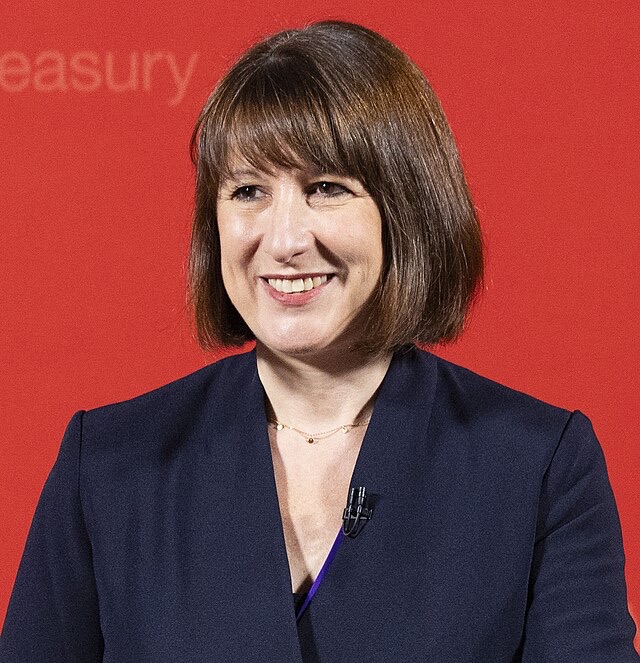Rachel Reeves is reportedly considering a tax raid on pensioners amid growing pressure to fill the Treasury’s coffers, whilst simultaneously preparing to reject Labour backbench demands for a wealth tax on Britain’s richest citizens.
The Chancellor is set to dismiss calls from the party’s left wing for a blanket levy on the wealthy, with senior government sources warning that those targeted would simply leave the country rather than pay up.
However, a senior Government source has revealed that Reeves will not publicly rule out a wealth tax, as raising capital gains tax or implementing pension tax changes could technically be described as taxing wealth.
Both options remain under active consideration as the Chancellor grapples with funding pressures, the source told The Times, highlighting the delicate political balancing act facing the Treasury.
Former Labour leader Lord Kinnock has emerged as a vocal advocate for wealth taxation, urging his party to impose a two per cent tax on assets worth more than £10million – a proposal that has gained backing from Labour’s more vocal backbenchers.
The senior source explained the Treasury’s dilemma: “The problem is that if the Treasury start shooting down Kinnock’s proposal, they end up being boxed in. It’s not going to happen, but they can’t say that publicly.”
Ministers have privately branded the wealth tax idea a “non-starter”, warning that such measures “just don’t work” based on international evidence.
“Just look at what’s happened in other countries that have introduced them. They just don’t raise money, certainly not the kind of money that we’re looking for,” one minister stated.
Another cabinet minister confirmed a wealth tax was “off the table”, adding: “Wealthy people are mobile, they can move their assets to other more favourable jurisdictions.”
Lord Kinnock had claimed that his proposed tax would raise £11billion towards what Reeves has described as a “black hole” in public finances.
Dan Neidle, a tax lawyer and Labour member, dismissed wealth taxes as “fantasy politics and lazy sloganeering”, arguing they have only raised a “pittance” where implemented.
Currently, only four countries worldwide impose wealth taxes: Colombia, Norway, Spain and Switzerland. Eight others have introduced and subsequently scrapped them: Austria, Denmark, Germany, Finland, France, Iceland, Luxembourg and Sweden.
“For a Government that says it prioritises growth, a wealth tax would be a counterintuitive move,” Neidle argued. “People with a brain know it’s not going to happen. Anything you do which creates a hostile climate for investment has an impact.”
Instead of a wealth tax, the Chancellor is reportedly poised to extend “stealth taxes” for at least two more years in her Autumn Budget.
Current income tax and National Insurance thresholds are frozen until 2028, meaning more people pay higher rates of tax as their incomes rise with inflation.
Reeves is set to extend this freeze until 2030, which could raise up to £7billion for the Treasury – though critics argue this would contradict Labour’s manifesto pledge not to increase taxes on “working people”.
The freeze effectively acts as a tax rise by stealth, as wage inflation pushes more workers into higher tax brackets without any change to headline rates.
These deliberations come as the Chancellor faces mounting pressure to find new revenue sources whilst maintaining Labour’s election commitments on taxation.
The rejection of a formal wealth tax leaves Reeves with limited options, particularly given Labour’s pledge not to raise income tax, National Insurance or VAT rates.
Capital gains tax reform remains one of the few areas where significant revenue could be raised without breaching manifesto commitments, though any changes risk alienating investors and entrepreneurs.
The debate highlights the fundamental tension between Labour’s traditional supporters calling for wealth redistribution and the party’s need to maintain business confidence and economic stability.
Treasury officials are reportedly examining various options for raising revenue from wealthier citizens without implementing a formal wealth tax, including potential changes to inheritance tax reliefs and dividend taxation.
The government’s reluctance to pursue wealth taxes reflects concerns about capital flight and the practical difficulties of implementation, issues that have plagued similar efforts internationally.
As pressure mounts ahead of the Autumn Budget, Reeves faces the challenge of raising substantial revenue whilst avoiding measures that could damage economic growth or breach Labour’s election promises.
Follow for more updates on Britannia Daily
Image Credit:
Reeves first speech (cropped) – Photo by UK Government, licensed under Open Government Licence v3.0 (OGL), via Wikimedia Commons.
View Image



